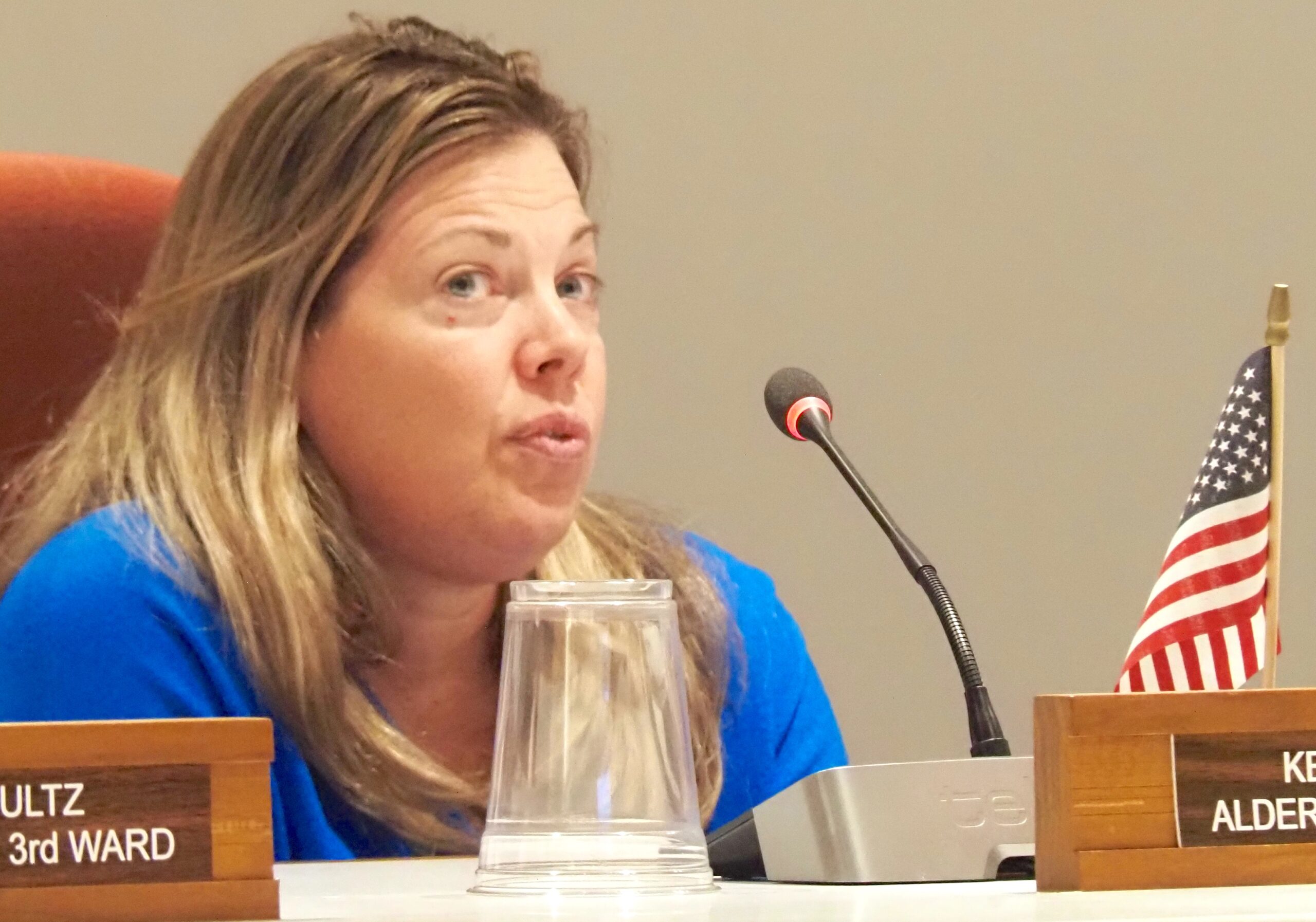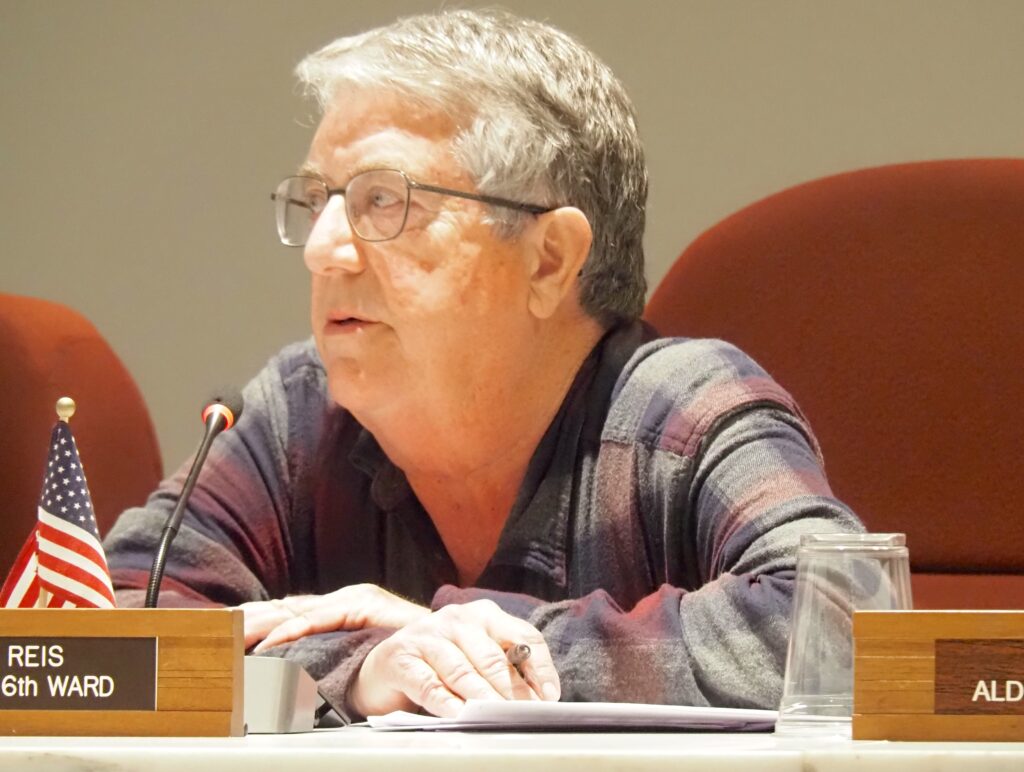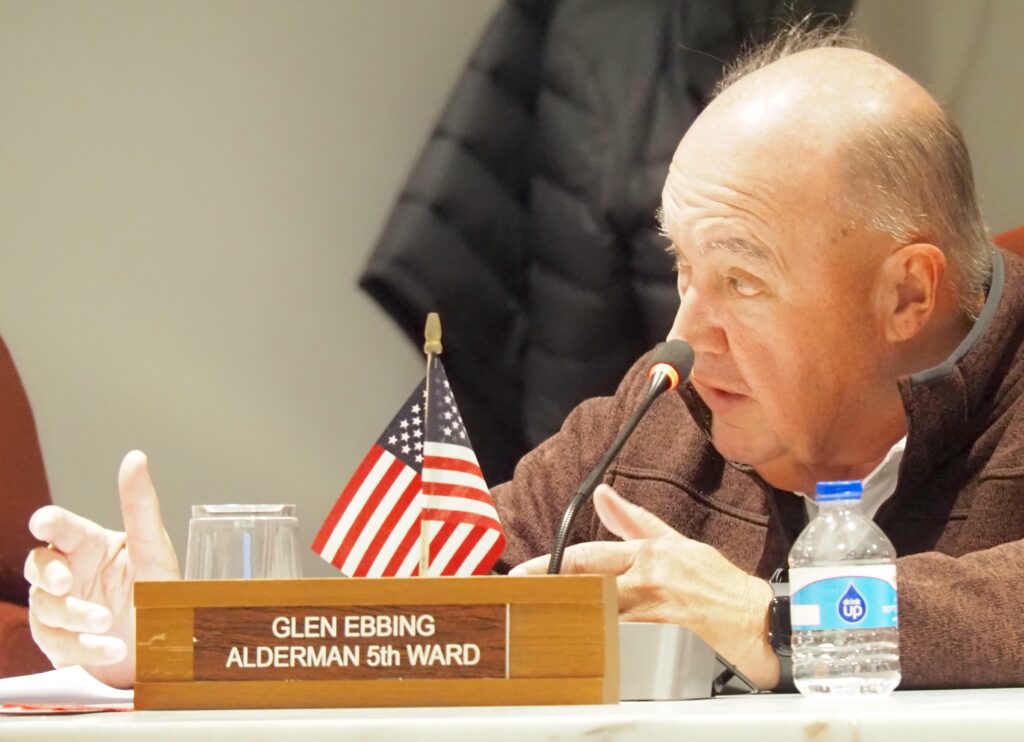Committee reviewing EAS proposals for Quincy airport considering options, but reliability is most critical

QUINCY — The committee members who volunteered to review the six proposals for essential air service (EAS) for Quincy Regional Airport are looking at the number of available fights, flight costs and destinations, the number of seats and single-engine versus jet service.
But the top priority when choosing a new airline is reliability.
About two dozen people — several of them aldermen — offered ideas and asked questions during Monday night’s public hearing in Quincy City Hall to discuss the EAS proposals. However, one theme seemed to dominate the discussion.
“We definitely want reliable coverage, whether it’s nine (seats on a plane) or 50,” said Jennifer Lepper, an agent with Quincy Discount Travel in Quincy and a former alderman.
“I want to say safety is my number one priority, and the second one is reliability,” Quincy Regional Airport director Bill Lantz said. “We get those two, and I’m golden.”
“Anybody who thinks (the biggest issue) is something else (other than reliability) hasn’t paid attention to what’s happened the last two years,” Quincy Mayor Mike Troup said. “Reliability chases business away, so we’ve got to rebuild that. That is vitally critical to being able to sustain Quincy as a regional hub.”
A lack of reliability from Southern Airways Express, which is in the second year of a four-year contract to serve as the EAS provider for Quincy Regional Airport, led to Troup reaching out to Michael Martin with the U.S. Department of Transportation (DOT) Office of Aviation Analysis to complain on June 12. Troup followed with a June 20 letter to express what he believed to be “significant issues” with Southern Airways Express.
Troup’s letter noted his dissatisfaction with the Florida-based airline’s performance revolved around:
- Frequent last-minute changes to flight schedules.
- Enplanement and completion rate issues.
- Passenger dissatisfaction, including a lack of notification for schedule changes, unscheduled stops and inadequate handling of delays and cancellations.
- Aircraft supply and maintenance issues.
One audience member asked why Southern Airways Express bothered to submit a new proposal. Troup says the airline has a new management group, and it has “some very experienced people” now running it.
“They wanted six months for us to work with them, and I said, ‘Look, we’ve (had) two years, and it just continues to get worse,’” Troup said. “I’ve got other things to do than to answer calls from the public raising dissatisfaction with their service. And honestly, I also got tired of, ‘Yes, we’re going to correct it,’ and then we didn’t see it.”
Each of the six airlines that submitted EAS proposals claimed flight completion rates of 98 or 99 percent. Determining which airline can provide the reliability Quincy wants isn’t easy by simply looking at a proposal on paper.
“It’s hard,” Lantz said. “That’s a tough decision. What I will tell you is, as a committee, we’re going to have to sort through that stuff. We’re going to have to look at the pros and cons of each group and ultimately make a sound decision based on what we know. There’s no crystal ball that gives you 100% accuracy.”
Troup asked those in attendance if they preferred jet service or single-engine service, and most preferred jet service. So does Lepper.
“The important issue is having a reliable jet that’s getting in and out,” she said. “That means you’re only getting the jet to Chicago. I’m fine with that, because I think people are going to fly that. They’re going to use that service.”
Troup said corporate policies for some business travelers prevent them from traveling on anything but jet aircraft. Lantz said the number of flights out of Quincy tend to be evenly split between Chicago, which Troup said is favored by the business traveler, and St. Louis, which Troup said is favored by vacationers.
However, Travel House owner Mecki Kosin said the lack of past reliability from other EAS providers means the next EAS provider should start slowly to regain the community’s trust.
“We get requests for both (flights to St. Louis and Quincy), but right now, for the last six months or so, we have discouraged (flying out of Quincy),” Kosin said. “Because I get the phone call when they’re stuck at the airport.
“While jets might be very, very nice, we have a big issue right now with creating some interest again for people to go out to the airport. Am I going to get out of here when I’m supposed to? We can’t have these 50-passenger jets coming in here and for two years fly empty or cancel every flight because nobody’s going. We need to make sure that these airlines know that they have a big hill to climb. I’d rather start with a smaller plane and fill it and then graduate to a bigger one.”
“Clearly 50-passenger jets are more comfortable. There’s no question about that,” committee member Ralph Oakley said. “But at the same time, if we’re going to have one flight a day versus five flights a day, or whatever it is, with a smaller airplane, I think that has to be thought about. I’m not sure how the vacationing public sees that, but I think the business flyer would see that as a big issue.”


Committee member Don Carpenter asked Troup if the EAS proposals could be modified. He suggested Quincy look into the possibility of combining flights with Burlington, Iowa, allowing for more total flights while adding the extra stop in Burlington.
“That’s not up to us,” Troup replied. “We’re to review the proposals. We’re not negotiating with the airlines.”
“Aren’t we communicating with the Department of Transportation? Don’t they work for us?” Carpenter said.
“Well, we will communicate to them, but our marching orders are which proposal (should the committee recommend), so we can’t really drive anything,” Troup said. “We just have to accept it because (the Department of Transportation) put out the RFP (request for proposals).”
After the meeting, Carpenter still wanted to learn if the Department of Transportation would consider other options.
“The cost of our federal government to support this activity is a concern that I’ve had, as well as getting more seats occupied by people so the subsidies go down,” he said. “Essential air service, that was like 45 years ago, and it was supposed to only last for 10 years. It’s been a golden spigot, and maybe it’ll go away if we don’t manage it better. Why don’t we drive the Department of Transportation to see what Quincy wants?”
Carpenter also asked if planes were available from any airline offering more seats than the single-engine aircraft but less than the 50-passenger options.
People in attendance, by a show of hands, told the committee they were uninterested in service from Quincy to Nashville — offered by two airlines. The committee also learned from Bernie Vahlkamp, chief of the Quincy Fire Department, that it cost approximately $230,000 over two years to provide aircraft rescue and firefighting (ARFF) service when jets were last part of EAS service at the airport in 2018.
Lantz recently told the Aeronautics Committee that airlines have suggested the city increase its landing fee for commercial airlines to cover the expense of firefighter staffing. The airport’s landing fees were last modified in 2016.
Troup said he needs to get answers from the airlines about some of the questions asked Monday night.
“The Christmas holiday will complicate that further,” he said. “(The airlines are) going to be quite responsive right now at this dating stage. This is the time for them to really show how much they really want this (contract).”
Troup said another meeting, yet to be scheduled, will involve presentations from the airlines. Asked if he would bring all six airlines to that meeting, he said no.
“I would think three to four,” he said. “Four would be pushing it.”
He’s still convinced air service can rebound to the pre-COVID levels that had more than 10,000 passengers annually.
“We had 27,000 passengers go through the Amtrak station in Quincy this year, and we’re only going to do 4,000 or 4,100 through the airport,” Troup said. “Now, you can’t say people in Quincy don’t like to travel. They do, but they have to have reliable service.”
Miss Clipping Out Stories to Save for Later?
Click the Purchase Story button below to order a print of this story. We will print it for you on matte photo paper to keep forever.

